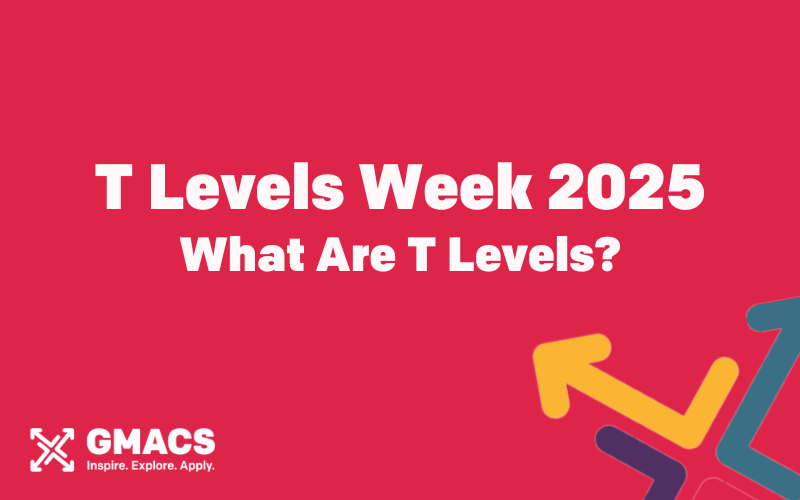T Levels Week 2025: What Are T Levels?
National T Levels Week is here!
So, to get us started with the week, what could be better than a blog that tells you exactly what a T Level is? We’re also covering why many people choose a T Level and what the potential benefits are.
What is a T Level?
T Level courses last for 2 years and are focused around one study area. Unlike with A levels, where you’ll generally study 3 or 4 different (although often related) subjects, with a T Level you focus on one area. This means the courses can be more in-depth into specific skills and are much more hands-on. One T Level is the same amount of work as 3 A levels, and takes the same amount of time (2 years).
Sometimes a T Level is called as a vocational course. Vocational courses are courses which are focused more on training for a certain job or area of work.
How does the course work?
80% of your time on a T Level will be classroom based. Much like with an A Level, you will have lots of classroom learning, coursework to complete, and potentially exams to sit.
The other 20% of your course will be outside the classroom, where you will gain work experience through an industry placement. This is kind of like the experiences that apprentices have, where they learn on the job. Although your industry placement is much shorter than an apprenticeship – it’s 45 days long.
The industry placement
As well as the classroom learning, T Levels offer you the opportunity to put your knowledge to test in the workplace. The industry placement will give you a real experience of working life.
You usually apply for an industry placement the same way you’d apply for a job role, but your college will support you with this. This means you can look for a role with an organisation that offers an experience you think will match your future career.
It gives you the chance to make the course more personal to you as you have control over the direction you want to take. To find out what kind of placement you could do on your T Level, check out the GMACS T Level placement page.
What subjects can I study?
There are lots of courses available. There’s a wide range of subjects to study within Greater Manchester, with a lot of topics at A Level, BTEC or apprenticeship having a T Level equivalent.
Listing each course in Greater Manchester would take a long time, so instead why don’t you have a look at what’s on offer? On GMACS, you can look through each area page to discover which T Level courses are on offer at which college. Why not have a peek now at what’s available at your local college?

How are T Levels graded?
We mentioned earlier that T Levels will test your knowledge in the same way as they do A levels: through coursework and exams. The grade you receive at the end of the course will be calculated from all the assessments you’ve completed over the two years.
You’ll be graded through a Distinction, Merit and Pass system. Remember at the beginning when we said that one T Level is the same as three A levels?
Now we’re going to use this example again to explain the grading system. If you were to get a distinction in your T Level, that would be the same as three A’s at A level.
To make this a bit clearer we’ve included a graph below.
| T Level grade | A level grade |
| Distinction* | A* A* A* |
| Distinction | A A A |
| Merit | B B B |
| Pass (C or above on the core component) | C C C |
| Pass (D or E on the core component) | D D D |
It’s good to know how your tutors will grade on your chosen course, as it will give you an idea of what to aim for. Get familiar with this sooner rather than later.
Why should you choose to do a T Level?
The way T Levels are structured is what makes them desirable courses. Studying a field or subject that you’re passionate about is an exciting prospect. But more than that, having the opportunity to get real work experience is great way to help you decide what you want to do in the future.
And once you’ve finished a T Level, you’ve got lots of options. If you want to continue with further education, you can. But if entering the world of work is something you’d prefer to do, the real work experience you’ve gained on your industry placement will be invaluable.
For more on T Levels this National T Levels Week, check out the GMACS Instagram or find out more on the T Levels page on GMACS.


